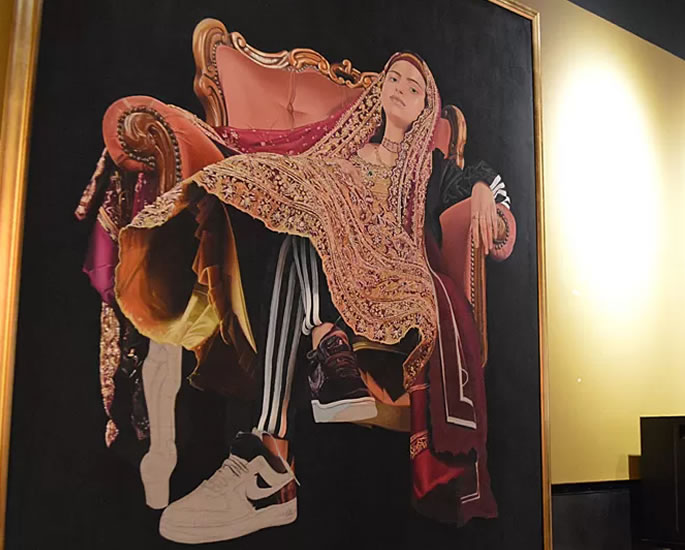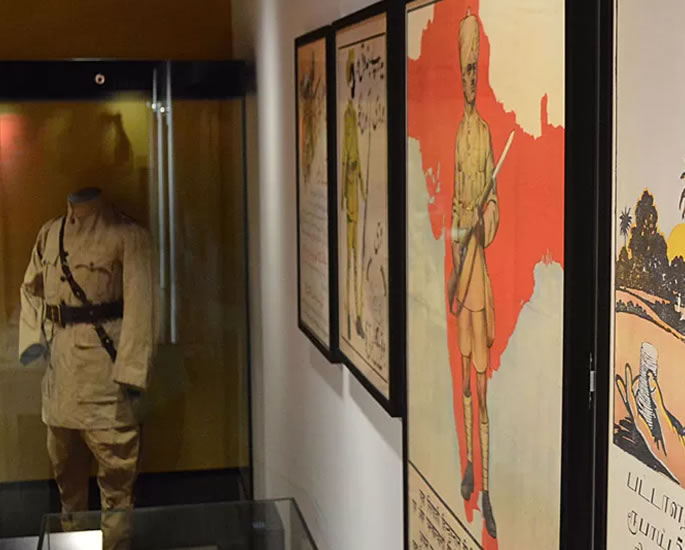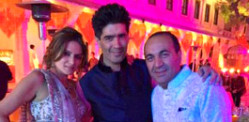"They were very much part of British life before then."
Manchester Museum is presenting a fresh view of South Asian culture in a new gallery.
The gallery was created as part of its £15 million renovation.
The museum says it is the “first permanent gallery in the UK to celebrate the lived experiences and contributions of the South Asian diaspora”.
Twenty-four members of the public have curated it.
Co-ordinator Nusrat Ahmed said: “We want to show the richness and diversity of South Asia.
“It was to break down stereotypes and myths, and it was to highlight South Asia as being at the forefront of many things.”

Some of the co-curators have lent their own possessions that tell family stories.
They include Fal Sarker, grandson of quantum science pioneer Satyendra Nath Bose, whose items include letters between Bose and Einstein.
BBC Radio Manchester journalist Talat Farooq Awan found his great-grandfather’s Army uniform during a visit to Pakistan and persuaded his family to let him bring it back to the museum.
It is being displayed alongside posters recruiting people for the British Army in languages including Urdu and Hindi.
Nusrat added: “We really want to highlight that South Asians didn’t just come in the 1960s and ’70s.
“They were very much part of British life before then.”
The gallery has been added as part of Manchester Museum’s overhaul, which will reopen on February 18, 2023.
The donated objects have filled in gaps in the collections of Manchester Museum and the British Museum, which has also lent some items.
Exhibits range from ancient pottery from the Indus Valley to a Quran cube, which is an electronic speaker that recites part of the holy book.
The collective was formed in 2018 after incoming Manchester Museum director Esme Ward took more than 100 people from the local community out for dinner and asked what they wanted to see.
Nusrat explained: “For me, that was a turning point of how museums are doing things.
“They’re actually asking us to talk about our heritage, rather than telling us.”

Historian Anindita Ghosh, said: “It’s a story of South Asia taught by South Asians themselves. And that’s a very empowering spirit.”
She has decided to tell the story of Mahatma Gandhi’s visit to Manchester and Lancashire in 1931 when an Indian boycott of British cotton goods was causing hardship in English mill towns.
Anindita said: “His arrival was very different from what people expected. He was greeted very warmly.
“We have a very striking image of Gandhi surrounded by women mill workers. They absolutely embraced his presence.”
“I wanted to tell a story of the Empire, but of the Empire as a local story.”
Esme Ward said the gallery was initially conceived as a chronological history of South Asia, but she wanted to find a “more inclusive and more imaginative” way to tell the story.
She said the collective has provided a “different perspective” and has “led us to stories we’d never have imagined”.






























































